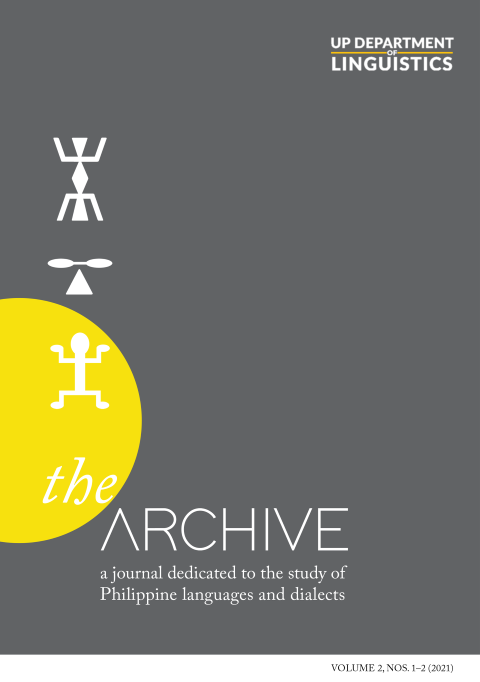Nominalization in Surigaonon: Beyond Forming Noun Phrases
Abstract
Multiple processes and transformations take place for a complex sentence in Surigaonon to be formed. One of these is the process called nominalization. In Surigaonon, various methods of nominalization were observed using the transformational generative framework as a guide for analysis along with semantic grammar and rule writing as used in the analysis of Gramar ng Filipino (Malicsi 2013). These include nominalization through na + S, nominalization by using the complementizer kun and kun + interrogatives, as well as nominalization of non-nominal predicates. Nominalization can be lexical or grammatical and also verbal-based and nominal-based in some languages. The study exhibited both lexical and morphosyntactic levels of analysis for nominalization. The elements found in the environment where each type of nominalization occurs are also described. In such environments, restrictions can be deduced which paved the way for rule formation. In addition, studies of complex sentence formations in various languages particularly the Bisayan languages have evolved over the years.
In this study, appropriate data collection procedure is significant for the analysis and formation of the stated grammatical rules in compound and complex sentences. The procedure included collating and browsing previous printed literature and other data sources both in the traditional and online platforms. Data sources include homilies, transcription of native-speaker informant interviews, Surigaonon word lists and other materials online, and sentences I formed on my own. A team of validators who are native speakers was tasked to ensure the grammaticality and accuracy of the data collected.


